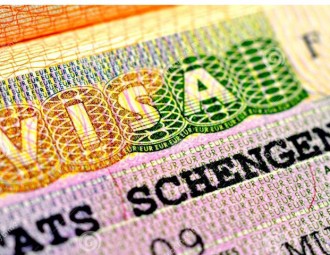BelarusDigest: EU lifted Belarus’ sanctions though nothing really changed in the country

The European Union should not just lower its expectations but take more active steps to become more visible and influential inside Belarus.
On October 31 the suspension of most European Union targeted sanctions against Belarus came into effect.
The sanctions were suspended “in response to the release of all Belarusian political prisoners on 22 August and in the context of improving EU-Belarus relations”. Ironically, the move comes a few weeks after the facade presidential election in October 2015.
The move shows that the EU's expectations of Belarus have become much lower. In the late 1990s the West expected from Belarus free and fair elections and greater respect for human rights. A regime change in Belarus looked realistic then. Twenty years later the main expectation of the European Union is not significant political changes but avoiding violence against political opponents and securing the release of political prisoners.
Although the European Union is not for the first time changing its policy from one of sanctions to engagement, fundamentally little has changed inside Belarus over the last decade. Freedom House rankings of Belarus show almost the same scores for democracy, independent media and civil society in that period. The authorities conduct elections that are neither free nor fair, imprison and then release their political opponents and keep civil society under pressure.
The changes in the European Union's approach reflect not so much changes inside Belarus but changes in the regional context. In the late 1990s Russia looked like an emerging democracy moving in the right direction. Lukashenka was an abnormality that had to be ostracized. Belarus as a small and unimportant country was easy to sanction.
Now Vladimir Putin is rigging elections, staging wars in the region and conquering foreign territories. This makes Lukashenka look rather mild. He even appears as a guarantor of peace and Belarusian independence against the background of the Ukraine crisis.
But although Russia is busy with wars in Syria and Ukraine, Belarusian statehood and independence today is more vulnerable than ever. In the post-Crimea world the tolerance for violence in the post-Soviet region has increased. Russia's appetite for influence in the region is growing. Instead of supplying Belarus with warplanes, Russia wants to provide its pilots as well.
The minds of Belarusians are also under pressure from Russia. Most people in Belarus watch Russian television as their main source of news, exposing them to high doses of anti-Western propaganda. The Belarusian authorities would like to replace this with their own propaganda but are unable to do so without angering Russia. For the same reason, the Belarusian regime considers it foolish to make any significant moves towards the West, and instead prefers to stay in the shadow of Russia.
Lukashenka has made the country extremely vulnerable and dependent upon Russia. This does not mean, however, that Belarus should be punished for it and abandoned because of Europe's fatigue and preoccupation with other problems.
The European Union should not just lower its expectations but take more active steps to become more visible and influential inside Belarus. This should include long-term programmes in the area of education, scholarly exchanges in the framework of the Bologna process, and strengthening the civil and national identity of Belarusians.
Finally, it is important to lower the visa barrier. Ironically, while hundreds of thousands of migrants cross the European border without any visas, Belarusians have to undergo long, expensive and often humiliating procedures to go to the West. It happens not because the government prevents them from leaving, as in the Soviet times. The main obstacle is that European Union states prefer to issue short-term visas and charge the full price.
Belarusian nationals face much stricter visa requirements than citizens of Russia or Ukraine. The policy of the European Union towards Belarusians should remain favourable even when the government of Belarus does not want to liberalize or open up the country. It is in the long-term interest of both the people of Belarus and the European Union to do so.
The article was originally published at BelarusDigest
-
03.01
-
07.10
-
22.09
-
17.08
-
12.08
-
30.09








































